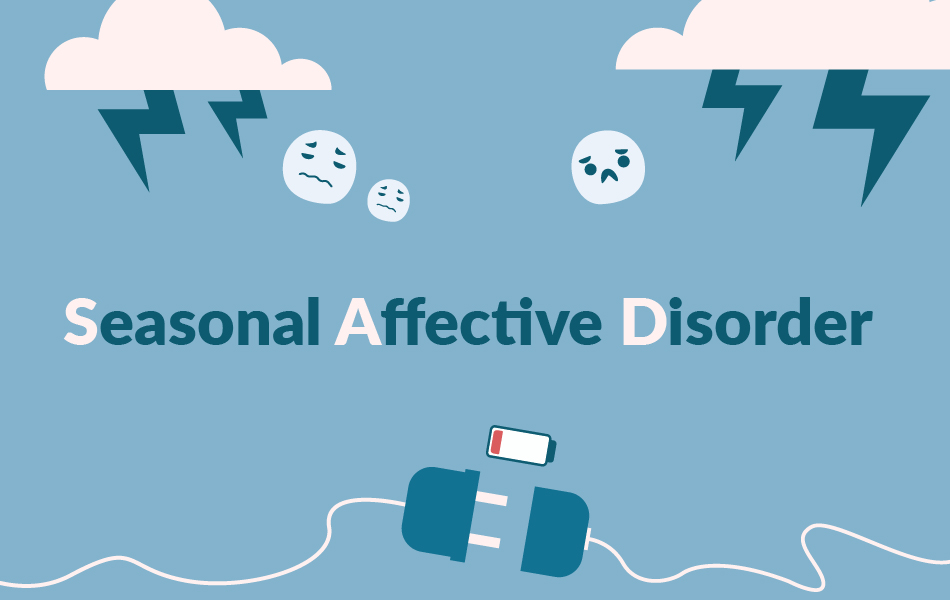
Broken Heart Syndrome
September 12, 2018
Burnout is Real
September 12, 2018The short answer to this question is yes. However, it’s essential to understand that depression is so much more than all-consuming sadness neatly fitting under a single umbrella diagnosis.
Depression is one of the most common and most powerful mental health conditions a person can endure. But also, it’s more than just “Being Sad”. It ultimately affects your thought patterns, feelings, and even your day-to-day life. Depression ranges from persistent and severe to mild and temporary periods of downheartedness. As much as the symptoms of depression may vary from person to person, so does the diagnosis.
Depression is one condition but with many different ways of revealing itself – from Baby Blues to Seasonal Affective Disorder (SAD). It is only through years of understanding the various faces of depression that a proper diagnosis can start you on the road to treatment which will help you better manage this often debilitating condition.
The disorder is commonly misunderstood as most people believe the stigmas surrounding mental health conditions. Many myths surrounding depression still persist. People who experience depression face frequent prejudice due to the strong stigmas society has formed. In this article, we will be explaining the various types of depression and what you can do to help yourself live a happier and more fulfilling life.
If you feel like you can’t help yourself, we suggest making a booking with a therapist so that they can help you on your journey to wellness.
Different Types of Depression
Some of the various types of depression include:
- Major Depression
- Dysthymia
- Postpartum Depression (Baby Blues)
- Seasonal Affective Disorder
- Atypical Depression
- Psychotic Depression
- Situational Depression
Major Depression is one of the most common types of depression, with symptoms of hopelessness, extreme sadness, irritability, lethargy, loss of interest in previously pleasurable activities, lack of concentration, changes in eating and sleep patterns, chronic physical pain, and recurring dark thoughts of suicide. Usually when at least five of these symptoms last for more than two weeks, a diagnosis of major depression (or clinical depression) is made.
Seasonal Affective Disorder can be described as an extreme winter weariness. You feel depressed most of the time, gain weight, and have no interest in social activities during winter months. But SAD is more than just some funk, and symptoms include fatigue during the day, heightened anxiety, and irritability. These symptoms tend to set in at the start of winter and subside when spring rolls around.
Despite the implications of its name, Atypical Depression is another common type of depression and one that mental health professionals believe to be underdiagnosed. The main symptoms of this form of depression are a kind of paralysis presenting as heaviness in the arms and legs that tends to occur when oversleeping or overeating – also significant signs of atypical depression. People with this type of depression will experience weight gain, increased irritability, oversensitivity to rejection, and relationship problems.
Psychosis is a mental state marked by hallucinations and delusions. Psychotic Depression occurs in some people with very severe depression, where they experience false sights, sounds, delusions, and may even become catatonic in some cases.
Situational Depression is considered a temporary form of depression brought on by stressful events, like the death of a loved one, losing your job, a bad breakup, or trauma. Symptoms include anxiety and excessive sadness that usually clear up over time. In some cases however, these symptoms could become worse and develop into major depression.
To receive adequate depression treatment, it’s essential that you speak to your doctor about your unique experience to make a proper diagnosis.
Five Depression myths debunked
“It is not a real illness.”
Several people still think that depression is directly linked to sadness. In some cases, people even view it as a weakness of character. In fact, depression is a complicated mental health disorder that will affect essential aspects of your life if left untreated. It can originate from social, biological or psychological backgrounds and can be treated in a variety of different ways.
“Just take antidepressants, and you will be fine.”
Yes, depression is treatable, although in some cases, your medical practitioner can prescribe antidepressant medication to aid in your treatment. This medication alters your brain chemistry and can address biological issues that contribute to the condition.
“Just snap out of it.”
So many people living with depression have heard friends or family tell them to “just snap out of it” because others think that the person is simply wallowing in their sadness or grief. Due to the lack of understanding, they tend to believe that an attitude change or positive thinking can help cure their depression. In reality, no one chooses depression. The condition negatively impacts brain chemistry, the way you function and the way your environment is structured.
“You are just sad. It will blow over.”
Everyone experiences sadness, hopelessness and irritability from time to time, but that does not determine whether or not you have depression. Someone struggling from depression needs the proper support. If they don’t receive the appropriate care, the disorder won’t simply just blow over.
“You will have to take antidepressants for the rest of your life.”
Antidepressants provide long-term treatment for many people with depression. Still, the length of time that your medical care provider advises you to take them can vary based on the severity of the condition. That does not mean you will have to take them forever. Your doctor also can prescribe psychotherapy which will help you learn new ways of coping with life’s challenges.
Common symptoms include:
- Irritability
- Excessive anger
- Feeling empty or numb
- Decline in productivity
- Avoiding social settings or engagements
- An overwhelming feeling of hopelessness
- Loss of interest in activities you used to enjoy
- Constant lack of energy
- Feelings of guilt
- Lack of appetite
- Insomnia
When to seek help
Suppose you feel like there is a chance that you have more than two or three of the symptoms above, and it is negatively affecting your life, work and relationships with others. In that case, it might be time to consider reaching out for help. Taking action to prevent things from getting worst should be a top priority. It should be noted that feeling depressed does not necessarily mean that you have depression, so our best advice would be to come in and see one of our friendly mental health care providers.
The Good News About Depression
Yes, there is good news and it’s that in any and all types of depression, there is treatment available. Depression isn’t something you have to live with forever in a constant downward spiral. You can overcome the struggle and go on to live a fully satisfying life. There’s no shame in seeking help for depression and you don’t have to suffer alone in silence indefinitely.
We know that the thought of opening up might seem like an insurmountable task when you’re feeling at your lowest, but acceptance and sharing is the first and most important step to healing. There is nothing you have done to cause your condition. Depression is nobody’s ‘fault’. And in your time of feeling worthless, hopeless, and ashamed, a good support system is invaluable.
Knowing that you are not alone, that there are others going through the same or similar struggles, that family and friends are there to listen when you need it… this makes a significant impact on your journey to better mental health. It takes great courage to come forward and share your experience, and this kind of courage always pays off – through support from loved ones who better understand your condition, and the guided care of mental health professionals.
Our team at ZwavelStream Clinic is sensitive to this internal struggle that sometimes plagues people suffering from depression, and is entirely committed to providing the highest dedicated care. If you feel that you need treatment for depression, or would like more information, please don’t hesitate to contact us.





